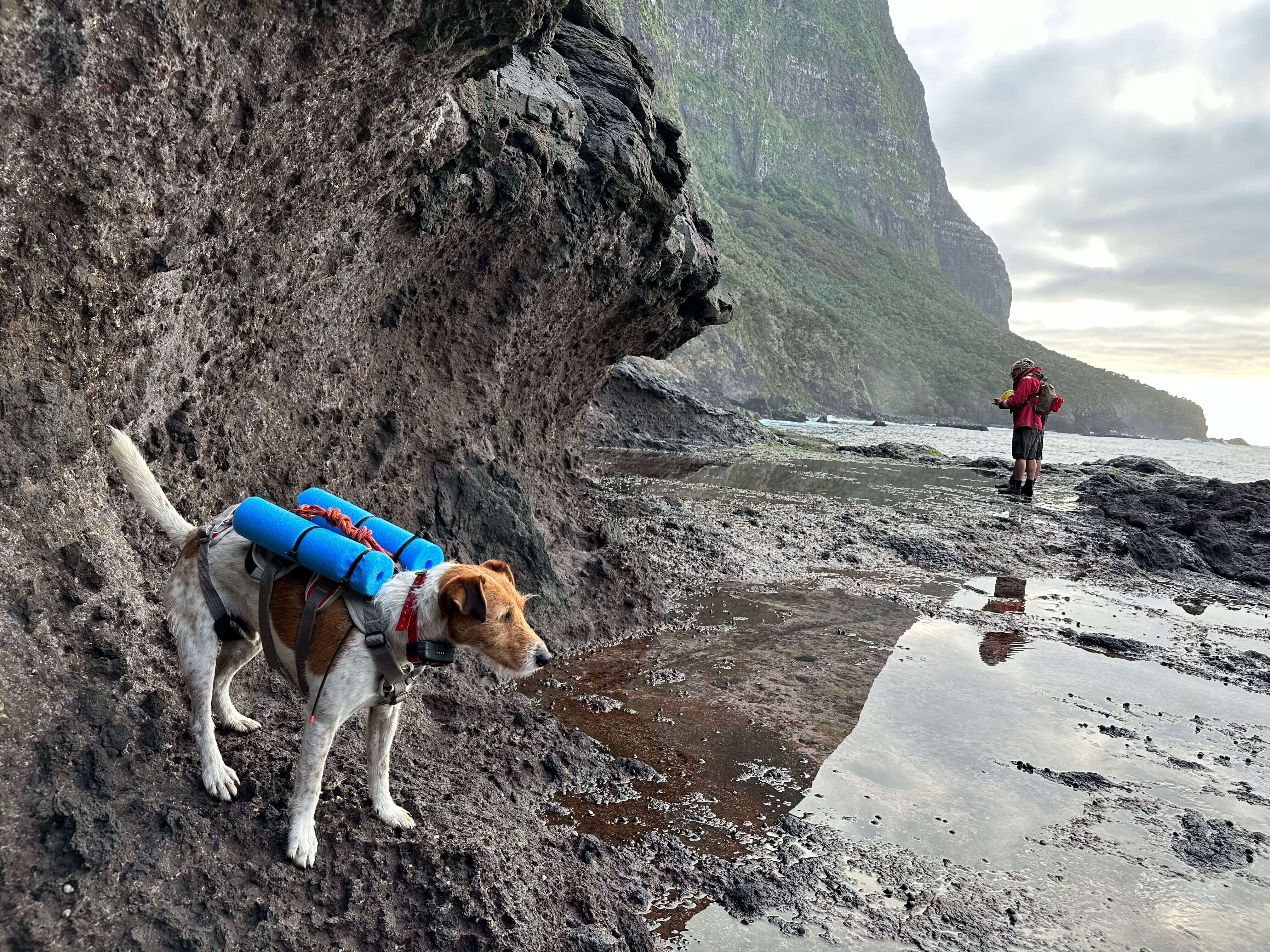An intensive and spatially comprehensive rodent detection check was carried out in July 2023 by the Lord Howe Island Board. The ‘Checkpoint’ program aimed to confirm the absence of black rats and house mice on the Island.
The search program and data found no live rodents for over two years, signaling a significant milestone in the Island’s eradication process.
The results were analysed and confirmed by leading experts, the Island Eradication Advisory Group from the New Zealand Department of Conservation (IEAG).
How the program was run
For the first time since the start of the REP, a comprehensive range of environments were sampled throughout the Permanent Park Preserve (PPP), a 1100-hectare area dense with diverse animals and plants.
Two-week-long scouring of the PPP and settlement area was combined with long-term data from LHI’s ongoing biosecurity surveillance network, which revealed no live rodents. This detection network consisted of 140 tracking tunnels, over 300 wax tags and chew cards, 32 trail cameras, and checks by detection dogs.
Results from the July check and long-term data from the existing biosecurity program were used to check for rodent presence.
Tracking tunnels like this were analysed for rodent presence
Program timing
The last recently dead rat on LHI was identified in August 2021.
By winter 2023, it was expected that any surviving rodents would have had enough time to breed up to a population density that is readily detectable. If present, rodent abundance should have reached a similar level as was present at the start of the REP (Bode, Success Check Paper, June 2023).
The next chapter
This globally significant project has delivered exceptional ecological benefits and has been vital in ensuring the survival of our unique native and threatened species.
Vigilance is required to ensure we continue to enjoy the benefits of a rodent-free environment. Ongoing surveillance will be achieved through a modified biosecurity program.
Keeping LHI free from rodents requires ongoing monitoring and a community commitment to protect the Island’s unique values and environments. Planned improvement of biosecurity controls and infrastructure at points of departure to prevent future incursions will enhance the rigour of the biosecurity regime required to protect past investment. These upgrades will be a key driver in procurement of a new marine freight service. Ongoing review of the Biosecurity Management Plan will enable improvements to be reflected in the regime as they are implemented.

